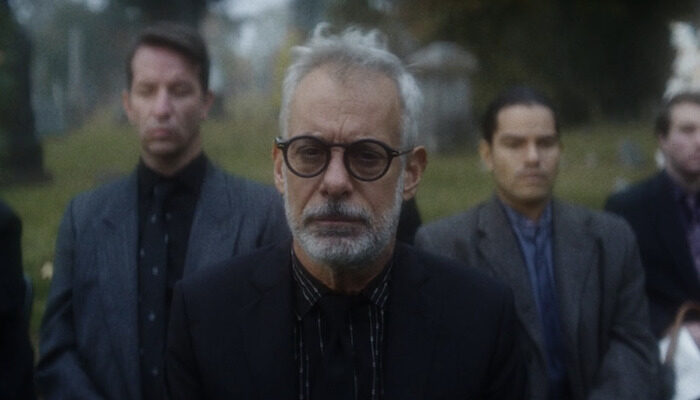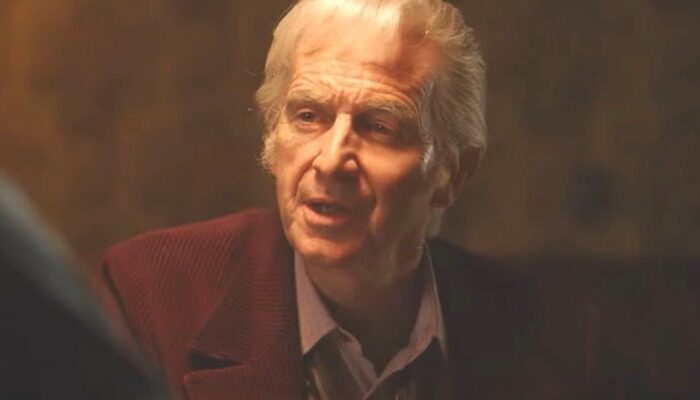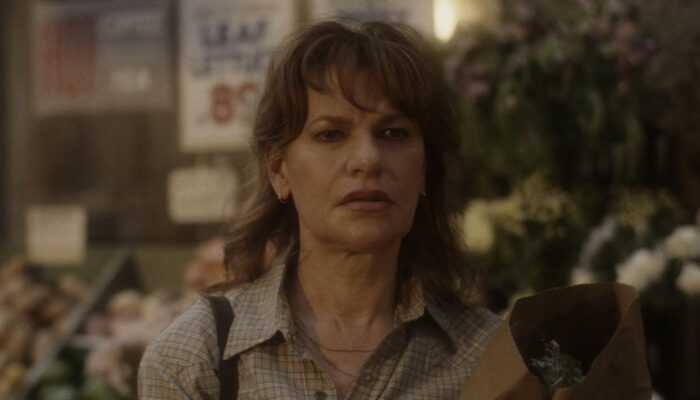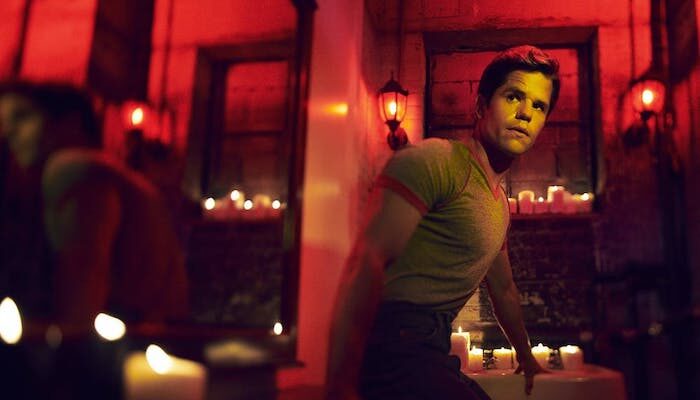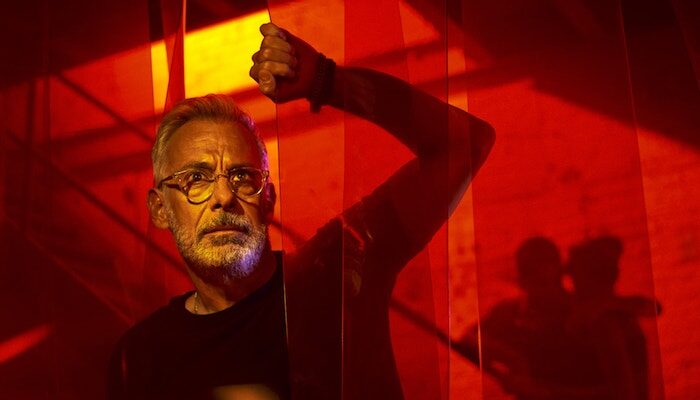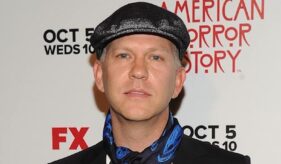TV Review: AMERICAN HORROR STORY: Season 11, Episodes 9 and 10: 1981/1987, Part 1 & Part 2
American Horror Story: NYC: 1981/1987, Parts 1 and 2
FX’s American Horror Story: NYC: Season 11, Episodes 9 and 10, 1981/1987, Part 1 & Part 2 TV Show Review
Season 11 wraps up with before-and-after parallel plots with a few in between.
These interrelated episodes expose the psyches of the characters from their own point of view as they meet their demise, followed by various combinations of confrontation and absolution. They also clarify a fair amount of ambiguity in terms of backstory and symbolism. The visual style stays consistent with previous entries; even the sunshine seems shadowed or jaundiced. The performances all around hit powerful crescendoes in these episodes, particularly those at the deathbed. Kudos to the actors who, without exception, did splendid work.
Requiem 1981/1987 Part 1
Sam & Theo
After fainting at Theo’s burial, Sam awakens in a hospital, where Theo appears as a physician and escorts him to different rooms, each with previous sexual conquests, each dying alone due to the stigma of AIDS. Back in his room, he too dies, abandoned and gasping for breath from PCP. Theo’s judgment: Sam used his power to exploit others.
Sam & Henry
Sam awakens, caged in an empty twilight. Henry appears to him in leather gear, as two men are tied down and tortured (by Sam himself?) with vengeful ferocity. These represent Sam’s first boss and his father, indulging his resentment.
Abruptly Sam finds himself on the beach at Fire Island, chased and then caught by Big Daddy, who then releases him but spares the ritual beating. Sam stands and confronts Big Daddy, and takes off the mask to reveal an angelic blond. They kiss, observed by the ‘antler men’ standing nearby.
Henry, alone on the beach, scatters Sam’s ashes in the surf.
Patrick, Gino & Barbara
Gino visits Patrick, hospitalized but receiving shoddy care due to the prevailing AIDS stigma. Gino confronts the doctor, who arrives with the news that Patrick has CMV retinitis. (Filmmaker Derek Jarman suffered from this condition and filmed his last feature, Blue, as a documentary.)
Patrick sees the ghost of Barbara, who leads him on a tour of his own self-delusion. He meets Gino when they were both on the job as cop and reporter, followed by a scene in which teenaged Patrick fails as a crack shot with a pistol in front of his father — also a cop — referring to him as ‘limp-wristed.’
Finally, back in the hospital, with Barbara and Big Daddy looking on, Gino tenderly nurses Patrick who in turn finds trust and strength in that tenderness.
Requiem 1981/1987 Part 2
Adam & Hannah
Adam visits Hannah only to watch her body removed by the police. He finds her recording regarding the illness and hears her choking as she voices her suspicion that a retrovirus in the cause, as though she’s being strangled. Listening to the tape later, Hannah posits that she got infected via Adam’s insemination, thus the illness is an STD — a proposition summarily rejected by the Coroner, performing the autopsy only as a ‘favor’ to Adam.
Gino & Big Daddy
Big Daddy stalks Gino, now with full-blown AIDS, forcing frightful inner visions, all to do with dead and dying gay men, lines of them marching into a mass grave dug by B.D. himself. Accompanied by Kraftwerk’s ‘Radioactivity,’ Gino spends his last days as a militant for the cause of AIDS awareness. Despite the myriad of medications he takes to bolster his immune system, his health deteriorates. Finally, with his dying breath sees Patrick, smiling and backlit with a bright light, welcoming him with open arms. Last scene: Adam prepares to deliver Gino’s eulogy.
Big Daddy & Dickens’ Ghosts
The symbolism of this strapping phantasm, played by Matthew William Bishop, seems to evolve throughout, as the Reaper, demon, angel, sexual dynamics, primal fear, unresolved guilt or shame, or the virus itself. (Incidentally, ‘virus’ comes from the Latin, meaning ‘virile.’) Usually cruel and implacable, Big Daddy is tender to those who embrace him.
Taking the comparison made by some to the Dickens classic, B.D. does fit the bill as the Ghost of the Future, as Barbara — surprisingly well — represents the Past. Here’s a fun game: Who might stand in for the jovial Ghost of the Present against such a grim chronicle? Henry the Hitman, maybe? Not exactly jolly, but he is comparatively upbeat. Then again, Fran or Kathy Pizzaz, both full of zingers and vim, are pretty good contenders.
Other Voices, Other Glooms
Speaking of comparisons: Consider And the Band Played On, adapted from Randy Shilts’ superb reportage. This HBO film probably best explores the social complexities of the epidemic, especially the politics in the medical community. Tony Kushner’s Angels in America, on the other hand, stands in very good stead because of its quirky audacity. In one aspect, however, AHS: NYC does stand alone: broaching the notion outright that the HIV bug was engineered, as some professionals believe, then and since.
Conclusion
The showrunners attempted to blend emotional and factual narratives, the real, unreal, and surreal, as they impact street level subculture. It is open to debate, or at least to wide interpretation, how well these complement each other. Some may find the story thread of Season 11 too hazy, its message too muddled, undermining its own good intentions. Much like Whitely’s Sentinel, AHS: NYC is body-horror patchwork of a kind, a jigsaw puzzle of a series, best taken on its own terms. A rough, messy, persistently solemn road, but still one worth walking — well, once at least.
Last but not least, hats off to the writers, directors, and crew who pooled their talents to give this series a truly unique ambiance.
Leave your thoughts on this American Horror Story: Season 11, Episodes 9 and 10: Requiem 1981/1987: Parts 1 & 2 review, below in the comments section. Readers seeking to support this type of content can visit our Patreon Page and become one of FilmBook’s patrons. Readers seeking more TV show reviews can visit our TV Show Review Page, our TV Show Review Twitter Page, and our TV Show Review Facebook Page.
Want up-to-the-minute notification? FilmBook staff members publish articles by Email, Twitter, Facebook, Instagram, Tumblr, Pinterest, Reddit, Telegram, and Flipboard.
Related Articles
FilmBook's Newsletter
Subscribe to FilmBook’s Daily Newsletter for the latest news!







